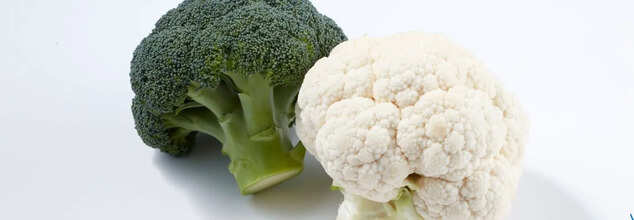- Health Conditions A-Z
- Health & Wellness
- Nutrition
- Fitness
- Health News
- Ayurveda
- Videos
- Medicine A-Z
- Parenting
- Web Stories

Credit: Canva
Why Are We So Addicted To Junk Food?
Why are we so addicted to junk food? This is a question we often find ourselves asking. From fries to chips, biscuits, instant noodles, pizza, burgers and soft drinks, it feels as if it is almost impossible to resist ultra-processed food. But is it the ease of availability, taste or the added addictive chemicals that make them so addictive? What impact do they have on one's health?
Let's Decode The Science Behind Junk Food
Science has the answer to why human beings are so addicted to everything that is ultra-processed and blatantly harmful to their health. First and foremost, these food items contain high levels of sugar and salt, which stimulate the brain's reward centres and lead to the release of Dopamine (pleasure hormone.)
Over time, the brain gets accustomed to this level of Dopamine ultimately requiring more and more junk food to attain the same level of satisfaction and pleasure. Here, it is pertinent to note that an abrupt reduction in consumption of these food items can cause withdrawal symptoms like irritability and cravings.
Another important factor is the ease of availability and lucrative marketing of these food items. Next time when you drive home, just pay attention to what the billboards display.
How Does Ultra-Processed Food Impact Health?
Research has linked ultra-processed food consumption to a slew of health conditions including obesity, type 2 diabetes, some cancers, cardiovascular disease, and even mild depression and anxiety, but a clear mechanism for harm hasn't been identified as yet. Since these food items are typically manufactured with ingredients encompassing artificial additives and preservatives, thus, they are extremely lethal to an individual's health.Furthermore, ultra-processed foods pose significant risks to dental health. These items drastically contribute to enamel erosion and tooth decay due to their acidic and sugary content.
Can Junk Food Kill You?
Recent studies, including a comprehensive 2024 research effort by Harvard University, have shed light on the profound impact of ultra-processed foods on longevity. The study tracked over 1,14,000 participants over three decades, revealing a 13% higher likelihood of premature death among regular consumers of ultra-processed meats and a 9% increased risk associated with sugary and artificially sweetened beverages.
Another study published in the British Medical Journal analyzed data from 2009 to 2023 and revealed that junk food lead to a 50% increase in cardiovascular deaths. Additionally, anxiety diagnoses surged by 48%, and mental health conditions such as depression increased by 53%. While less definitive, there is also evidence suggesting a 21% higher overall mortality rate associated with ultra-processed food intake.
Check You Junk Food Intake With These 5 Steps
1. Educate yourself and understand the negative health effects of consuming these food items.2. Choose whole foods and prioritize meals rich in fruits, vegetables, whole grains, lean proteins, and healthy fats.
3. Start reading labels to avoid lengthy ingredient lists or unfamiliar additives.
4. Prepare meals using fresh ingredients to control what goes into your food.
5. Stay hydrated throughout the day to manage cravings effectively.

Credit: Canva
Does Kombucha Help You Poop? Here's What Health Experts Say
Kombucha, the fizzy fermented tea drink that's taken health circles by storm, may do more than just quench your thirst. Rich in probiotics and naturally hydrating, kombucha could play a helpful role in keeping your digestive system running smoothly—and yes, possibly even helping you poop.
But How Does Kombucha Aid Digestion?
Kombucha is made by fermenting sweetened green tea with a symbiotic culture of bacteria and yeast (SCOBY). This fermentation process creates a drink loaded with probiotics—live microorganisms that are known to support gut health. Research shows that probiotics may help reduce gut inflammation, improve nutrient absorption, and ease symptoms of digestive issues like diarrhoea and bloating. They’ve also been linked to improvements in symptoms of irritable bowel syndrome (IBS), a condition often marked by constipation, abdominal pain, and irregular bowel movements.
While most of the studies focus on probiotic supplements rather than probiotic-rich foods like kombucha, it’s still considered a potentially valuable addition to a gut-friendly diet. However, since the probiotic content in kombucha varies from brand to brand, the exact health benefits may differ with each bottle.
Probiotics In Kombucha Improve Bowel Movement
Though no studies have directly investigated the link between kombucha and constipation relief, several reviews have found that probiotics in general can improve bowel regularity. For instance, one study found that probiotics reduced constipation in older adults by up to 40%. Others noted that probiotics improved stool frequency, consistency, and overall digestive transit time.
Given that kombucha is a natural source of probiotics, it may help promote regular bowel movements indirectly. However, more specific research is needed to establish a clear connection between kombucha and constipation relief.
Hydration Matters
Another reason kombucha might support digestion is that it's a fluid—and staying hydrated is key to preventing constipation. Water and other hydrating beverages help move food through the digestive system and soften stools, making them easier to pass. According to the U.S. National Academy of Medicine, men should aim for about 3.7 litres (125 ounces) of fluid per day, while women should aim for 2.7 litres (91 ounces). While kombucha shouldn’t be your sole source of hydration, it can contribute to your daily fluid intake and support overall digestive health.
A Word Of Caution
Not all kombucha is created equal. Some versions contain added sugars, fruit juices, or flavourings that can alter their nutritional profile. Additionally, because fermentation can produce trace amounts of alcohol, those avoiding alcohol should read product labels carefully.
Kombucha may not work like a laxative, but it supports digestive health in multiple ways. Its probiotic content may help regulate bowel movements, while its fluid content aids in stool consistency and hydration. Whether or not it helps you poop depends on individual factors such as your overall diet, health status, and how much you drink.
In moderation, kombucha can be a gut-friendly addition to a healthy, balanced lifestyle. Have you tried kombucha as part of your digestive health routine?

Credit: Canva
20 Best Foods For People With Kidney Disease
Kidney disease affects millions globally, often silently impairing the body’s ability to filter waste and balance nutrients. Diet plays a key role in managing the condition, especially since failing kidneys struggle to process sodium, potassium, phosphorus, and, at times, protein. Choosing kidney-friendly foods can help slow disease progression and improve quality of life. While individual dietary needs may vary by stage and severity of the disease, here are 20 of the best foods known to support kidney health.
1. Cauliflower
This cruciferous vegetable is high in fiber and anti-inflammatory compounds, yet low in potassium and phosphorus. Mashed cauliflower is a great low-potassium substitute for mashed potatoes.
2. Blueberries
Packed with antioxidants called anthocyanins, blueberries help protect against heart disease and are gentle on the kidneys due to their low sodium, potassium, and phosphorus content.
3. Sea Bass
Though high in protein, sea bass contains healthy omega-3 fatty acids that reduce inflammation. However, portion control is vital.
4. Red Grapes
Loaded with flavonoids, red grapes reduce inflammation and support heart health. They're low in potassium and phosphorus, making them ideal for snacking.
5. Egg Whites
A high-quality, low-phosphorus protein source, egg whites are a better option than whole eggs for people on a renal diet.
6. Garlic
With potent anti-inflammatory properties and rich flavor, garlic helps reduce reliance on salt and enhances immune function.
7. Buckwheat
This gluten-free grain is rich in nutrients like iron and magnesium while being low in potassium, making it a kidney-friendly choice.
8. Olive Oil
Free of phosphorus and rich in heart-healthy monounsaturated fats, olive oil supports both kidney and cardiovascular health.
9. Bulgur
Bulgur is a whole grain alternative lower in phosphorus and potassium than brown rice or quinoa and provides beneficial fiber.
10. Cabbage
Available in many varieties, cabbage is rich in vitamins and antioxidants that may reduce kidney and liver damage risk.
11. Skinless Chicken
Lean and high in protein, skinless chicken is suitable in limited quantities. Choose fresh over processed to avoid excess sodium.
12. Bell Peppers
Low in potassium and high in vitamins A and C, bell peppers support immune health without stressing the kidneys.
13. Onions
Flavorful and full of antioxidants, onions serve as a sodium-free base for many dishes, aiding digestion and kidney health.
14. Arugula
A low-potassium green, arugula is nutrient-dense and safe for kidney-friendly salads, with added bone benefits from vitamin K.
15. Macadamia Nuts
Lower in phosphorus than most nuts, macadamias are a smart, crunchy snack in moderation for those on a renal diet.
16. Radishes
Crunchy and spicy, radishes are extremely low in potassium and phosphorus, making them a refreshing addition to meals.
17. Turnips
A great alternative to potatoes, turnips offer fiber and vitamin C with relatively low mineral content.
18. Pineapple
Lower in potassium than other tropical fruits, pineapple provides fiber and bromelain, an enzyme that may reduce inflammation.
19. Cranberries
Helpful in preventing urinary tract infections, cranberries are also low in kidney-stressing minerals and can be enjoyed fresh or dried.
20. Shiitake Mushrooms
These flavorful fungi are a good plant-based protein source, rich in B vitamins and lower in potassium and phosphorus than other mushrooms.

Credits: Canva
Choline Deficiency Could Lead To Cognitive Decline
Choline is often known as "brain food". It is a nutrient related to B vitamins that play an important role in body and brain functions. However, the concerning part is about 90% of people do not consume enough of it.
It is essential for producing acetylcholine, which is a neurotransmitter that helps neurons or the nerve cells to build connections and communicate effectively. As people age, acetylcholine levels naturally decline. When these levels are lower than usual, it can cause conditions like Alzheimer's disease. Research also suggests that low levels of acetylcholine can impair memory, focus, and the ability to recall words.
As per a 2021 study published in the journal Behavioral Neurology, individuals who consumed between 188 to 400 mg of choline on a daily basis had a lower risk of cognitive decline. They had at least 40% less risk of experiencing cognitive decline compared to those with lower intakes of choline.
What Are The Different Kinds Of Choline? How They Benefit?
There are various forms of choline some benefit more than others.
For instance phosphatidylcholine is a type of choline that is found in eggs and is linked with lower dementia risk. A 2019 study observed that every additional 50 mg per day of phosphatidylcholine intake was associated with a 10 percent decrease in the likelihood of developing dementia. Since a large egg contains around 169 mg of choline, most of which is phosphatidylcholine, incorporating eggs into the diet can be particularly effective.
There are other emerging research in this field that suggests that increasing choline intake after Alzheimer's diagnosis could also slow the progression of the disease. It could also provide potential benefits even in the later stages of cognitive decline.
Are There Other Health Benefits Of Choline?
Other than helping the brain stay sharp, choline can also help maintain healthy liver function. It can play an important role for fat and glucose metabolism and reduce the risk of metabolic diseases like fatty liver disease and Type 2 diabetes.
It could also contribute to cardiovascular health by controlling inflammation, which is one of the leading reasons for heart diseases, including stroke.
How Much Choline In Okay to Consume?
Although the body makes a small amount of choline naturally, it is not sufficient to meet daily needs. The recommended Daily Value (DV) for choline is 550 mg. This amount typically needs to be obtained through diet or supplements.
While it’s possible to get enough choline through food, certain groups, such as older adults or those following a plant-based diet, may find it challenging. In such cases, supplements may be considered. However, not all multivitamins provide sufficient choline, so selecting a specific choline supplement — ideally around 300 mg — could be necessary. Consulting with a healthcare provider before starting supplements is always advisable.
What Foods Contain Choline?
There are many common food that contains choline, some of them include:
- Egg, 1 large (169 mg)
- Edamame, 1 cup (87 mg)
- Turkey breast, 3.5 oz. (84 mg)
- Chicken thighs, 3.5 oz. (75 mg)
- Salmon, 3.5 oz. (79 mg)
- Broccoli or Brussels sprouts, 1 cup (63 mg)
- Red potato, 1 large (57 mg)
- Kidney beans, ½ cup (45 mg)
- 2% milk, 1 cup (45 mg)
- Cottage cheese, 1 cup (37 mg)
- Plain low-fat yogurt, 1 cup (35 mg)
© 2024 Bennett, Coleman & Company Limited

